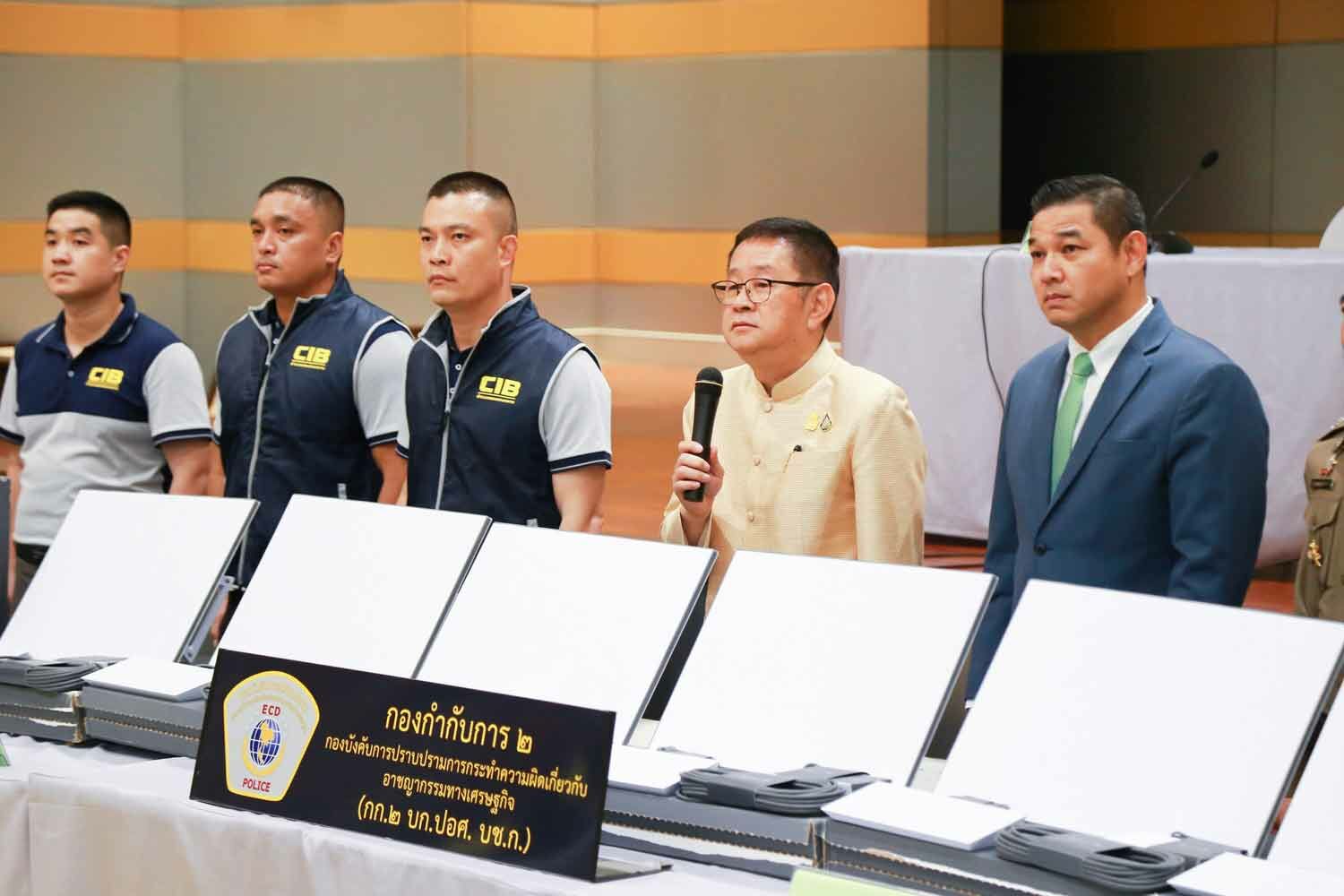DES Ministry snags Starlink sets in cosmic online crime crackdown

Digital Economy and Society (DES) Ministry officials confiscated 58 sets of Starlink satellite equipment allegedly intended for use by fraudsters to send and receive high-speed Internet signals via satellite, as part of a broader campaign to combat online crime.
DES Minister Prasert Jantararuangthong highlighted that efforts to curb online crimes, such as removing unauthorised cell signal towers and cross-border cables, have forced criminal groups to adapt their methods to evade detection and suppression.
“The DES Ministry and relevant agencies have adjusted their operations and increased coordination with security agencies to counteract these fraudsters.”
Prasert showcased the seized Starlink equipment during a press briefing yesterday. The operation was a collaborative effort involving the Central Investigation Bureau, the National Broadcasting and Telecommunications Commission (NBTC), and the state enterprise National Telecom.
The Starlink devices were found at a parcel delivery shop in Pong Nam Ron district, Chanthaburi province. They were intended to be shipped to addresses in Mae Sot and Mae Ramat districts in Tak. These devices are believed to be connected to a call centre scam and an online gambling network, with plans to forward them to associates near the Myanmar border.
Prasert stated, “The equipment was expected to be used for committing online crimes.”
All confiscated devices are classified as illegal goods smuggled in to bypass customs procedures, falling under the Customs Act of 2017. Consequently, police officers seized the goods.
Earlier, on June 10, the Royal Thai Navy, represented by the Chanthaburi and Trat Border Defence Command, inspected and confiscated six boxes containing sets of Starlink satellite equipment. These were found in front of another parcel delivery shop in Pong Nam Ron district, Chanthaburi.
The NBTC has not authorised the import of these devices into Thailand. According to the DES Ministry, the value of online fraud in April was 110 million baht (US$3 million) per day, a decrease of 26% from March, which saw 149 million baht (US$ 4 million) per day in fraudulent activity, reported Bangkok Post.
Latest Thailand News
Follow The Thaiger on Google News:


























